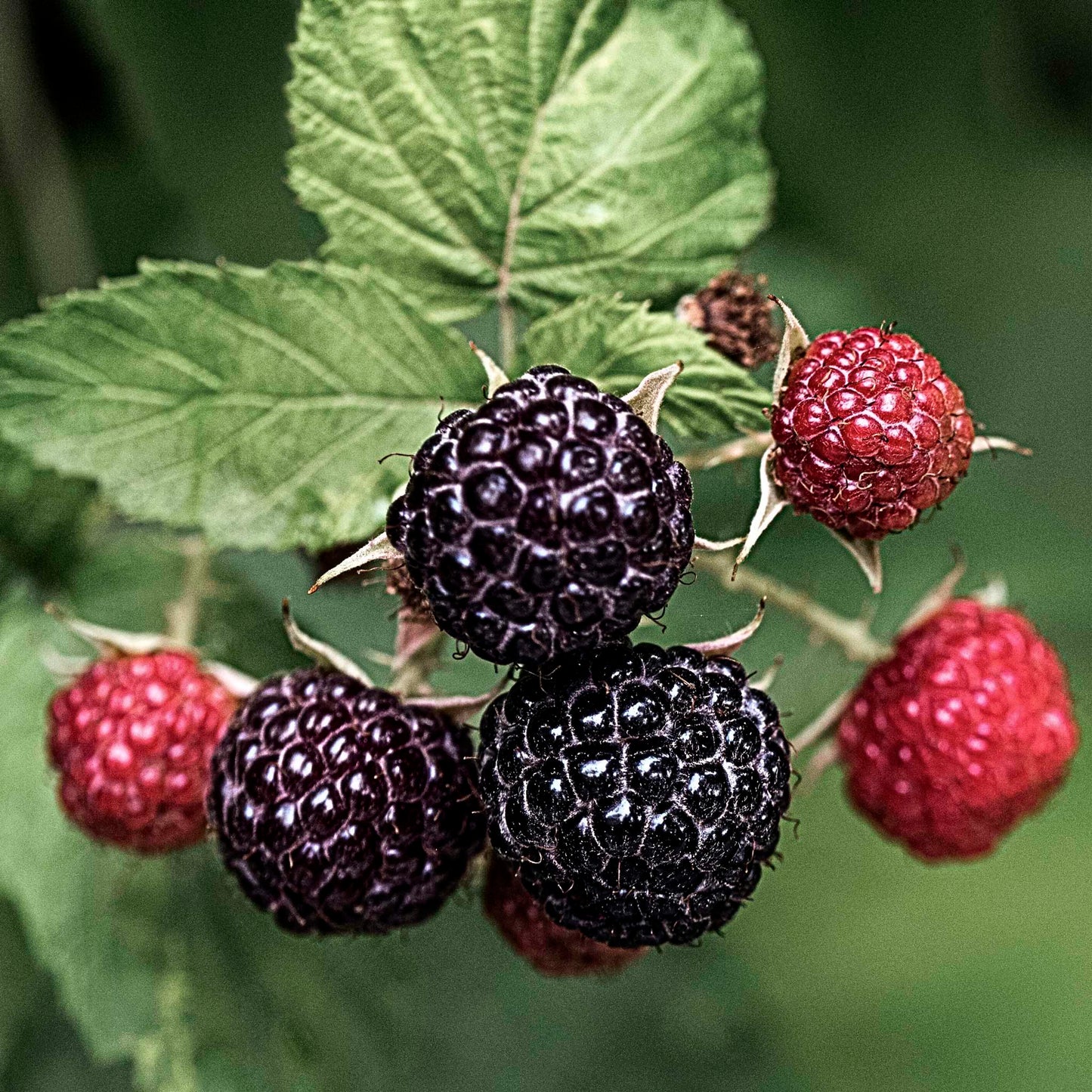Fruits And Shoots Plant Farm LTD.
Raspberry | Black Jewel
Raspberry | Black Jewel
Couldn't load pickup availability
This unique raspberry cultivar produces large, juicy berries in a distinct, deep black hue. An everbearing variety, Black Jewel typically begins ripening in late summer and continues fruiting well into fall. A prolific produce, it yields a generous amount of dense, thimble shaped, glossy black berries. Black Jewel is slightly less tangy then red raspberry cultivars with a subtle muskiness, similar to a blackberry. The study canes will grow up to 5 feet in height, so providing support with trellises is recommended. Black Jewel is hardy in USDA 4 through 8. Black raspberries are not widely cultivated and can be harder to find in grocery stores, as they have a shorter shelf life and are far too delicate for commercial distribution; A truly special addition to the home garden!

Common Raspberry Questions
What type of soil do raspberries need?
Raspberries grow best in slightly acidic, moist but well-drained soil. Avoid heavy clays. We recommend adding wood chips in the planting row and mulching around the canes helps conserve moisture and improve soil tilth.
How do I prune summer-bearing raspberries?
Summer-bearing raspberries produce fruit in a concentrated 3-4 week period, making them ideal for freezing or juicing. The best way to maintain and prune summer bearing raspberries is to remove all canes that have fruited during the dormant season. These fruited stems will be a light gray color compared to the new canes that will still have some green or red color to them.
How do I prune everbearing raspberries?
Everbearing raspberries produce fruit in early summer on last year's canes (floricanes) and again in fall on new growth (primocanes). To maintain them, prune out the oldest and driest canes while keeping the new growth, even if they fruited in fall, as they will fruit again next spring. Alternatively, everbearing canes can be cut to the ground every winter and allowed to grow up and fruit in the fall. While this means they won’t fruit at all during the early summer months, they will yield a bountiful fall harvest with the easiest pruning regimen.
Summer-bearing v.s Everbearing?
Summer-bearing raspberries produce a large, concentrated harvest in a short period, making them ideal for preserving, but they only fruit once per season. Everbearing raspberries provide a steady supply of berries from early summer into fall, offering fresh fruit for months, but they yield smaller amounts at a time. Everbearing varieties also require more selective pruning unless cut to the ground annually, while summer-bearing types have a simpler pruning routine.

